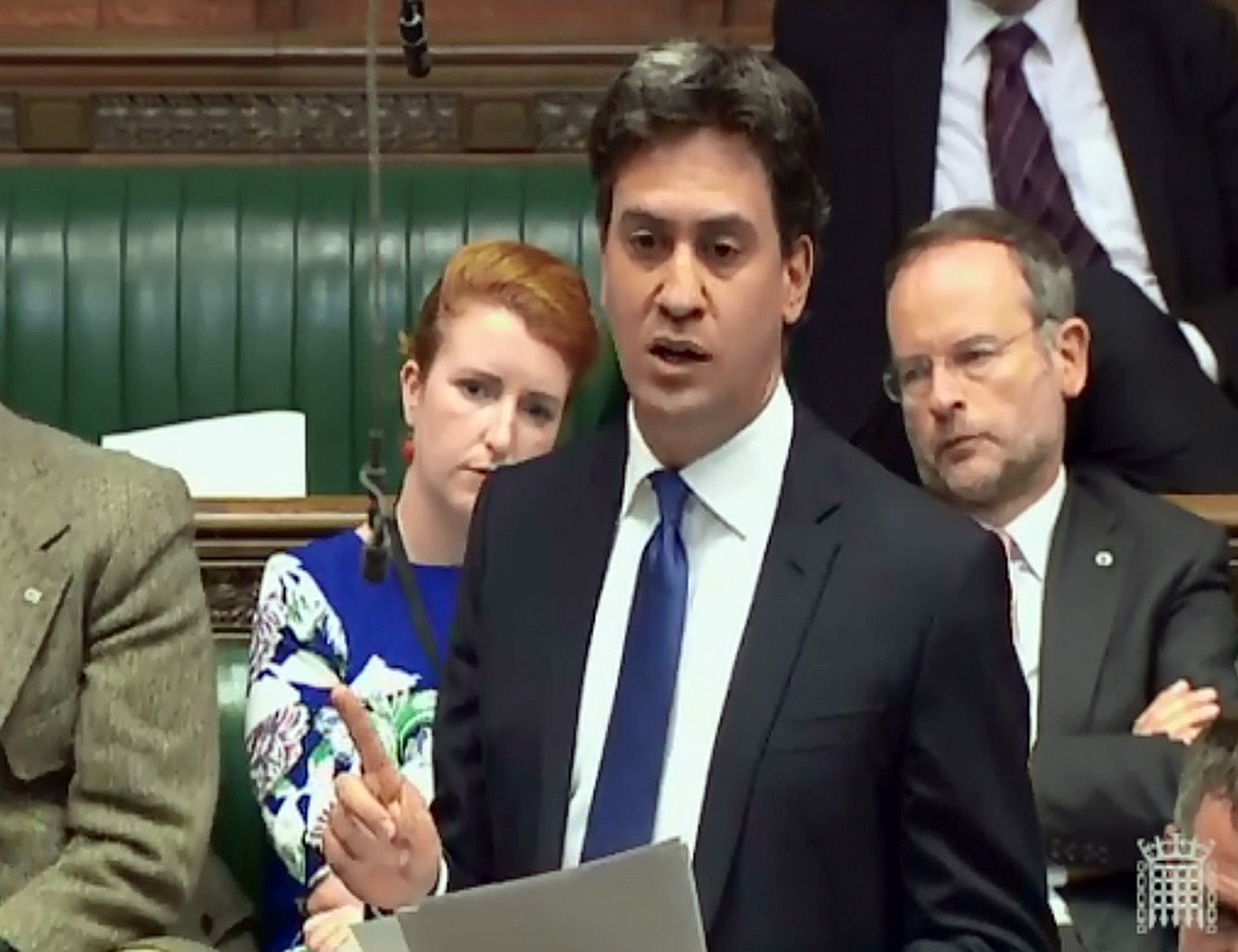Bad news for Labour – first impressions count
If its new intake of MPs is anything to go by, the party's talent-pool problem is only going to get worse


After every election I like to review the first speeches of the new MPs – and the first surprise this time is that everyone still calls them maiden speeches. I would have thought that would have died out by now.
Whatever they are called, they are an erratic indicator of political fortunes to come. In 2005 I singled out as interesting the first words in the House of Commons of Ed Miliband, Pat McFadden and Helen Goodman for Labour. Judge for yourself how that worked out. For the Conservatives, I mentioned Adam Afriyie, among others. That didn’t work out so well either. Five years ago I thought Jonathan Reynolds and John Woodcock, both Labour, were impressive. I said that the 2010 Tory intake was of notable high quality, although there were too many indifferent speeches of Eurosceptic Toryism. And I thought many of the Lib Dem contributions were weak and waffly.
This time, the new Tory intake again seems superior to Labour’s. The most striking contrast was between the first speech of Johnny Mercer, thirtysomething former soldier and Tory MP for Plymouth Moor View, and the dozens of dreary Labour activists and union officials sloganising rather than empathising about zero-hours contracts. Mercer’s unpolished but impassioned appeal to his fellow MPs to stop treating veterans as the objects of charity has become instantly famous.
But I was even more moved by many of the first speeches by the children of immigrants. Nusrat Ghani, the new Tory MP for Wealden, East Sussex, said: “My father exchanged his Kashmiri headmaster’s cloak for Birmingham biscuit factory overalls, and here I am, just one generation later, giving my maiden speech in the greatest democratic chamber in the world.”
Suella Fernandes, Tory MP for Fareham, another Home Counties seat, told how her father arrived at Heathrow in 1968, when “Kenya kicked him out for being British”. She said: “My family had nothing but hopes and dedication. They were so proud to be British and so proud to make our country even better. If I succeed in making some small contribution during my time in this place, it will reflect only a fraction of my gratitude to this country for the abundance of education, culture and traditions that have made Britain great, for the tolerance and fellowship of the British people, and for the opportunity and liberty that we all enjoy.”
Alan Mak, another Conservative and the first MP of British-Chinese heritage, gave a similarly affecting speech. Scott Mann, the Cornish postman who delivered his opponents’ election addresses as well as his own, added a working-class background to the social mix of the modern Tory party.
Not that all the Labour speeches were dreary. Angela Rayner, the new MP for Ashton-under-Lyne, is the first care worker to be an MP. “Perhaps I am also the only Member who, at the age of 16 and pregnant, was told in no uncertain terms that I would never amount to anything. If only those people could see me now.” At least when she spoke about zero-hours contracts she did so from experience.
Wes Streeting, Labour MP for Ilford North in London, was as impressive as he had been before he entered the House. He had a good line from a constituent, who offered a verdict on one of Streeting’s predecessors as MP for (part of) the constituency, Sir Winston Churchill: “most unsatisfactory”.
Finally, it is worth noting the first speech of Tommy Sheppard, one of the Scottish National Party’s army of 56, the MP for Edinburgh East. He struck a dignified note, saying his party accepted last year’s Scottish referendum result: “We have not come to this Chamber to argue the case for independence.” That argument would take place in the Scottish Parliament, he said. “We have come here to represent the people who elected us, and you will find us constructively engaged in order to deliver that.”
But the overall impression was of a strong Tory intake and an uninspiring Labour one. First speeches may be a misleading leading indicator, but Labour’s long-term prospects look bad.
Already it is hard to contradict the “golden-agers” who say that the narrow homogeneity of the field for the Labour leadership election compares badly with the giants of the past. Andy Burnham, Yvette Cooper and Liz Kendall: three products of the political back room. Compare them with Tony Blair and Gordon Brown, or with Healey, Foot, Crosland, Jenkins. I tend to scepticism about the better yesteryear thesis. Blair seemed green, tentative and always about to make some terrible mistake when he ran for the leadership. But none of the present three candidates has yet shown the full set of qualities required in a prime minister. Kendall is good, but untested, like Blair, and lacks his outstanding communication skills.
And if the first look at Labour’s new intake of MPs is anything to go by, the party’s talent-pool problem is only going to get worse.

Join our commenting forum
Join thought-provoking conversations, follow other Independent readers and see their replies